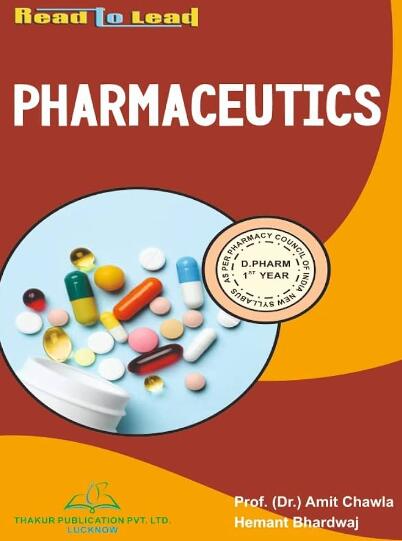Biologics in Systemic Lupus Erythematosus: Recent Evolutions and Benefits
IF 4.9
3区 医学
Q1 PHARMACOLOGY & PHARMACY
引用次数: 0
Abstract
Introduction: Systemic lupus erythematosus (SLE) is a multifaceted autoimmune disorder characterized by significant autoantibodies, particularly targeting nuclear antigens. SLE pathogenesis involves genetic, environmental, and hormonal factors. The disease course includes flares and remission and involves various organs. Recent therapeutic progresses, including biologics, have improved management and prognosis, though the long-term impact of novel therapies remains to be determined. Biologics in SLE: Rituximab, the earliest B-cell-oriented biologic, binds CD20 and depletes CD20+ B cells, leading to remission in some SLE patients. Belimumab is a B-cell-activating factor (BAFF) inhibitor with a recent additional indication for lupus nephritis. The CALIBRATE and BLISS-BELIEVE studies investigated combinations of these drugs with conventional therapies, showing varied efficacy. Ocrelizumab and obinutuzumab, newer CD20-oriented SLE therapies, together with ofatumumab and veltuzumab, are also promising. The latest trials highlight their efficacy and safety. Anifrolumab, targeting type-I interferon receptors, was evaluated in the TULIP 1/2 trials. The ongoing TULIP LTE trial supports the long-term safety and efficacy of anifrolumab. Additionally, the IRIS Phase III trial is exploring anifrolumab for lupus nephritis, showing favorable renal responses. Tocilizumab and secukinumab are being assessed for SLE, with mixed outcomes. Several biologics targeting the C5 complement protein, together with immunomodulators and immunotherapeutics, are also under investigation for potential benefits in SLE. Discussion: Biologics in SLE target specific immune components, aiming to improve disease control and reduce the side effects of conventional therapy. However, trial outcomes vary due to factors like inclusion criteria and trial design. Conclusions: Biotechnology progress enables targeted biologic therapies for SLE, reducing disease activity and improving patients’ quality of life.系统性红斑狼疮的生物制剂:最新进展和益处
导言系统性红斑狼疮(SLE)是一种多发性自身免疫性疾病,其特点是存在大量自身抗体,尤其是针对核抗原的自身抗体。系统性红斑狼疮的发病机制涉及遗传、环境和激素因素。病程包括发作和缓解,涉及多个器官。最近的治疗进展(包括生物制剂)改善了治疗和预后,但新型疗法的长期影响仍有待确定。系统性红斑狼疮的生物制剂利妥昔单抗(Rituximab)是最早的以B细胞为导向的生物制剂,它能结合CD20并消耗CD20+B细胞,从而使一些系统性红斑狼疮患者的病情得到缓解。贝利木单抗是一种B细胞活化因子(BAFF)抑制剂,最近新增了狼疮肾炎的适应症。CALIBRATE和BLISS-BELIEVE研究调查了这些药物与传统疗法的组合,结果显示了不同的疗效。Ocrelizumab和obinutuzumab是以CD20为导向的新型系统性红斑狼疮疗法,它们与ofatumumab和veltuzumab一起使用也很有前景。最新的试验强调了它们的疗效和安全性。针对I型干扰素受体的阿尼单抗已在TULIP 1/2试验中进行了评估。正在进行的 TULIP LTE 试验证明了安非鲁单抗的长期安全性和有效性。此外,IRIS III 期试验正在探索用阿尼夫单抗治疗狼疮肾炎,结果显示肾脏反应良好。Tocilizumab和secukinumab正在接受系统性红斑狼疮的评估,结果喜忧参半。一些针对C5补体蛋白的生物制剂,以及免疫调节剂和免疫治疗药物也在研究中,它们对系统性红斑狼疮有潜在的益处。讨论:治疗系统性红斑狼疮的生物制剂以特定的免疫成分为靶点,旨在改善疾病控制并减少传统疗法的副作用。然而,由于纳入标准和试验设计等因素,试验结果各不相同。结论:生物技术的进步使系统性红斑狼疮的靶向生物疗法成为可能,从而减少疾病活动并改善患者的生活质量。
本文章由计算机程序翻译,如有差异,请以英文原文为准。
求助全文
约1分钟内获得全文
求助全文
来源期刊

Pharmaceutics
Pharmacology, Toxicology and Pharmaceutics-Pharmaceutical Science
CiteScore
7.90
自引率
11.10%
发文量
2379
审稿时长
16.41 days
期刊介绍:
Pharmaceutics (ISSN 1999-4923) is an open access journal which provides an advanced forum for the science and technology of pharmaceutics and biopharmaceutics. It publishes reviews, regular research papers, communications, and short notes. Covered topics include pharmacokinetics, toxicokinetics, pharmacodynamics, pharmacogenetics and pharmacogenomics, and pharmaceutical formulation. Our aim is to encourage scientists to publish their experimental and theoretical details in as much detail as possible. There is no restriction on the length of the papers. The full experimental details must be provided so that the results can be reproduced.
 求助内容:
求助内容: 应助结果提醒方式:
应助结果提醒方式:


